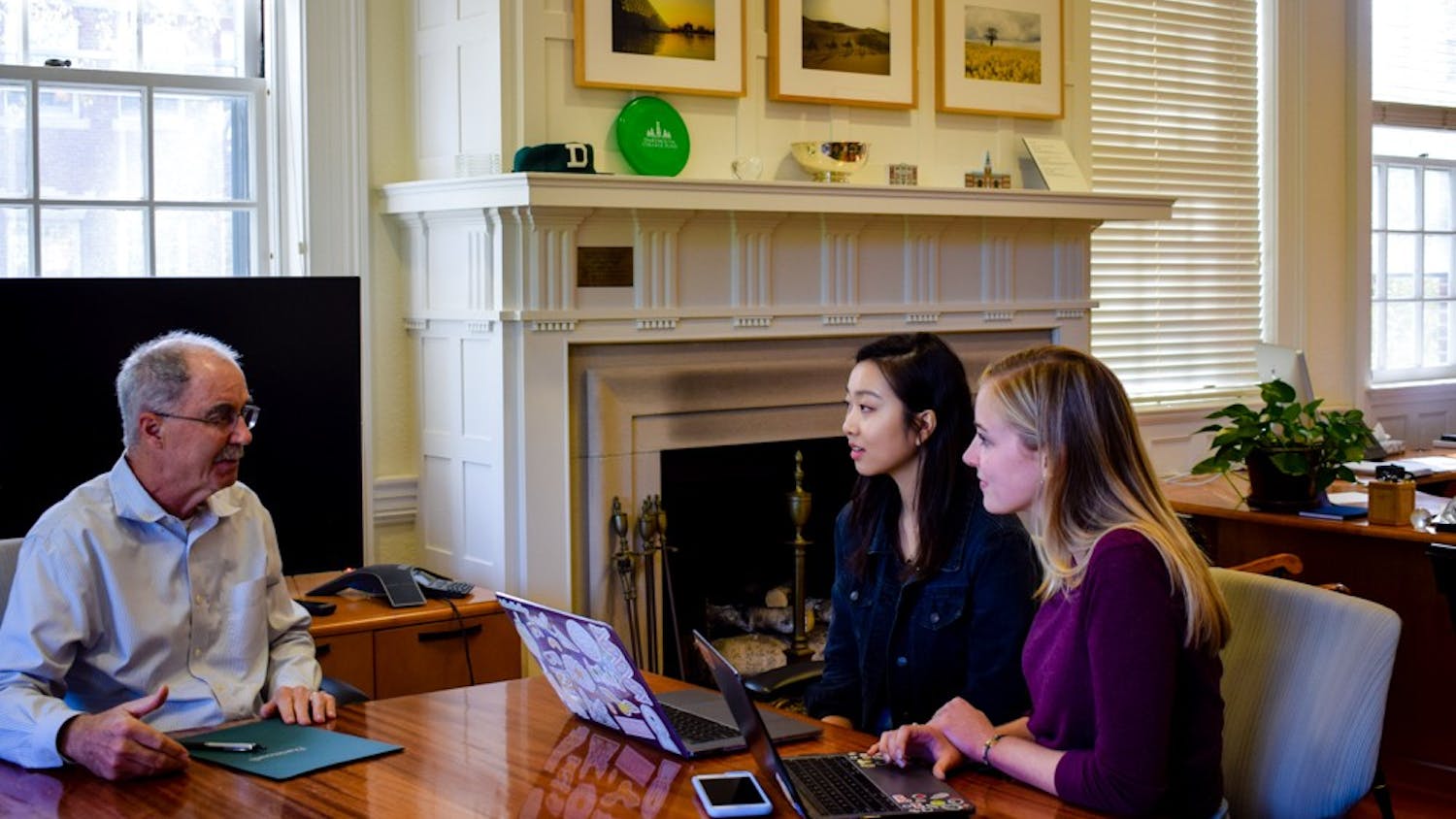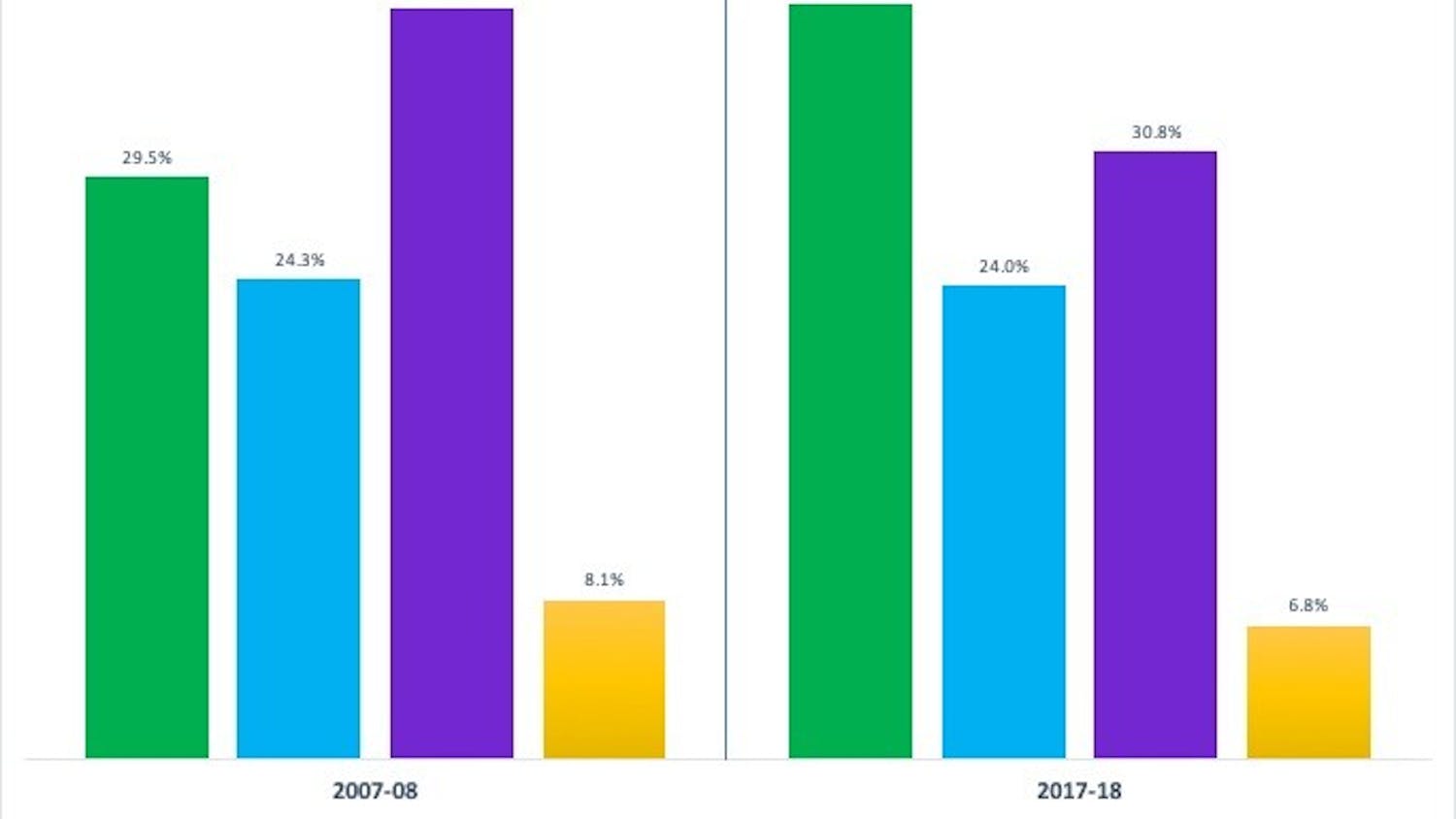Youth ages 15 to 18 spend about seven and a half hours a day in front of a screen using entertainment media, according to the Centers for Disease Control and Prevention. While it’s become effectively impossible to live in today’s society without being immersed in technology, increasing concerns about the excessive use of phones, tablets and laptops have led to efforts focused on limiting screen time.
“Those kids and their damn phones” has become a staple boomer statement, very easily dismissed by younger generations. However, there are genuine health and safety concerns when it comes to the use of technology. For instance, the impacts on mental health and well-being are far-reaching, whether they be sleep deprivation, lessened productivity, insecurities or more. A study conducted by Common Sense Media found that 36 percent of teens wake up and look at their phones in the middle of the night to view notifications or browse social media. This disruption of the sleep cycle raises concerns for productivity, mood and energy during the day.
Often blamed for anxiety and depression in youth, apps like Instagram, Twitter and Snapchat fuel the concept of comparison culture. Thirty-seven percent of teens say they feel pressure to post content that will get a lot of likes and comments. Users pick and choose to display the aspects of their lives that reflect most positively while leaving out and concealing those that are less desirable. While recognizing that technology provides an easy avenue for connecting with lots of people, communities and culture, there exist externalities that are far less celebrated.
Efforts seeded at Dartmouth have focused on promoting a healthier tech-life balance. Lookup.Live is a nonprofit organization co-founded by Susan Reynolds ’85. Reynolds said her charge for this cause began in 1997 when she took the position of academic director of technology at The Fenn School. While doing research with this job, she said she became aware of the dangers of digital addiction and has been investigating the issue ever since.
“One of the problems with the amount of screen time is that it takes away from non-screen activities that actually make you feel good like exercise or spending time with friends — being completely engaged, face-to-face,” Reynolds said.
A common challenge that people face today with digital addiction is that it often occurs without the user even realizing it. There aren’t many people out there saying that they want to be addicted to their phones, but it is a behavior that is learned very quickly.
“Intentional use of technology is very different from being swept away in passive use,” Reynolds said. “It’s important to ask: Are you creating or are you consuming?”
Sara Hileman ’20 and Diana Quezada ’20 are in the process of creating a club, Unplugged, with the primary goal of promoting healthier tech-life balance. While the club is in the process of being recognized by the Council on Student Organizations, its founders emphasize that they do not advocate for a complete shutdown, quit cold-turkey view of technology. Hileman and Quezada said that there is a healthy balance between too much technology and too little, and it is finding that balance that can be challenging.
“I never really noticed how much technology impacted me until I went on things like Trips,” Hileman said. “It was really just cathartic to get away from it. It’s really beneficial, especially from a mental health standpoint.”
Initiatives that the club has taken include booking tech-free study rooms, where phones and computers could only be used for academic purposes, according to Hileman. They have worked with Reynolds to promote initiatives such as the Look Up Challenge on campus.
“When you hear the words ‘mental health,’ people think of things like depression, anxiety, medication, but I think mental health works on a spectrum,” Quezada said. “Unless it’s branded like ‘yoga’ or a ‘silent trip,’ it doesn’t really get talked about, so getting into those things that we can do every day is important to me.”
Quezada also said that Unplugged has been working closely with Reynolds and LookUp.Live to gain momentum and support for the initiative. The most important aspect to Reynolds is that students are at the forefront of the effort because they are the generation that best understands the issue and can, therefore, design solutions.
During the fall term, LookUp.Live partnered with the Magnuson Center for Entrepreneurship and the Dartmouth Design Collective to sponsor a $2,500 grant competition to promote a healthier tech-life balance. This Designathon provided a winning prize of $5,000 to the team that produced the best solution to the issue of tech-life balance.
“Dartmouth students have the opportunity to be out in front of this issue,” Reynolds said. “What we are trying to start is the whole movement, and Dartmouth really has the chance to lead this social change.”




